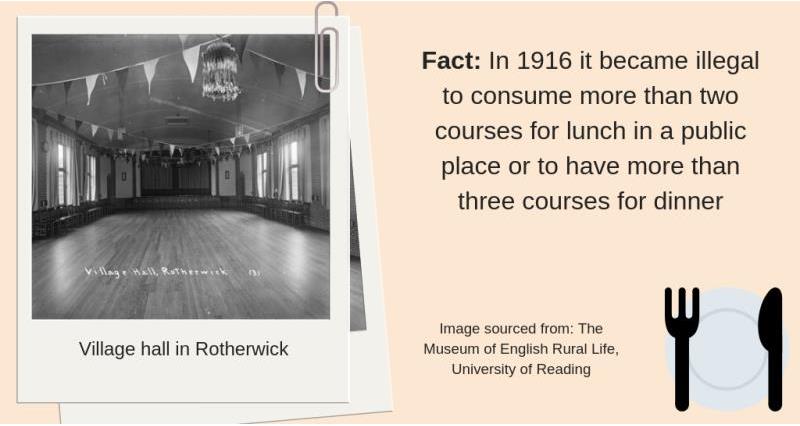This opened the eyes of rural residents to the things they were missing out on, says Prof Burchardt and it also helped spark the rise of trade unionism in agriculture, which became more firmly established in the 1920s and 30s.
“This period marked a real breakdown of deference,” adds Prof Burchardt. “The conflict had brought town and country folk closer together – those farm workers who went off and served on the fronts in France and Gallipoli, alongside all sorts of people, learned what they were missing out on.
“Namely, much higher standards of leisure and housing conditions and they wanted that for themselves too.”
One classic example is the rise of the village hall; before war few existed, and those that did were controlled and provided by wealthy landowners. There was a definite shift after 1918 when returning servicemen began to demand these facilities for themselves and their communities.
Many of the buildings were corrugated iron or tin huts previously used by the armed forces, which had required thousands during the war. All prefabricated, they were cheap and easy to dismantle and re-erect ready to serve as village, WI and Scout huts providing a venue for community events, meetings and other social activities.
“Thankfully, landowners didn’t oppose this and were supportive of efforts to provide more village halls, and as a result of this moderate approach, they were able to hold on to their power,” explains Prof Burchardt.
“For many years these halls were thought of as quite hum-drum, but a few still survive today and it’s now been realised they’re an important part of our heritage.”
Farming and the First World War homepage
How the countryside recovered from World War One?
Farming and the First World War: The role of stately homes
Farming and the First World War: Wartime women
Farming and the First World War: Mechanisation and the workhorses of war
Farming and the First World War: Food supply
Farming and the First World War: The humble pea
Farming and the First World War: The Women's Land Army
Farming and the First World War: The blind farmer
The Few That Fed The Many: Special publication on the role farming played during World War One?
